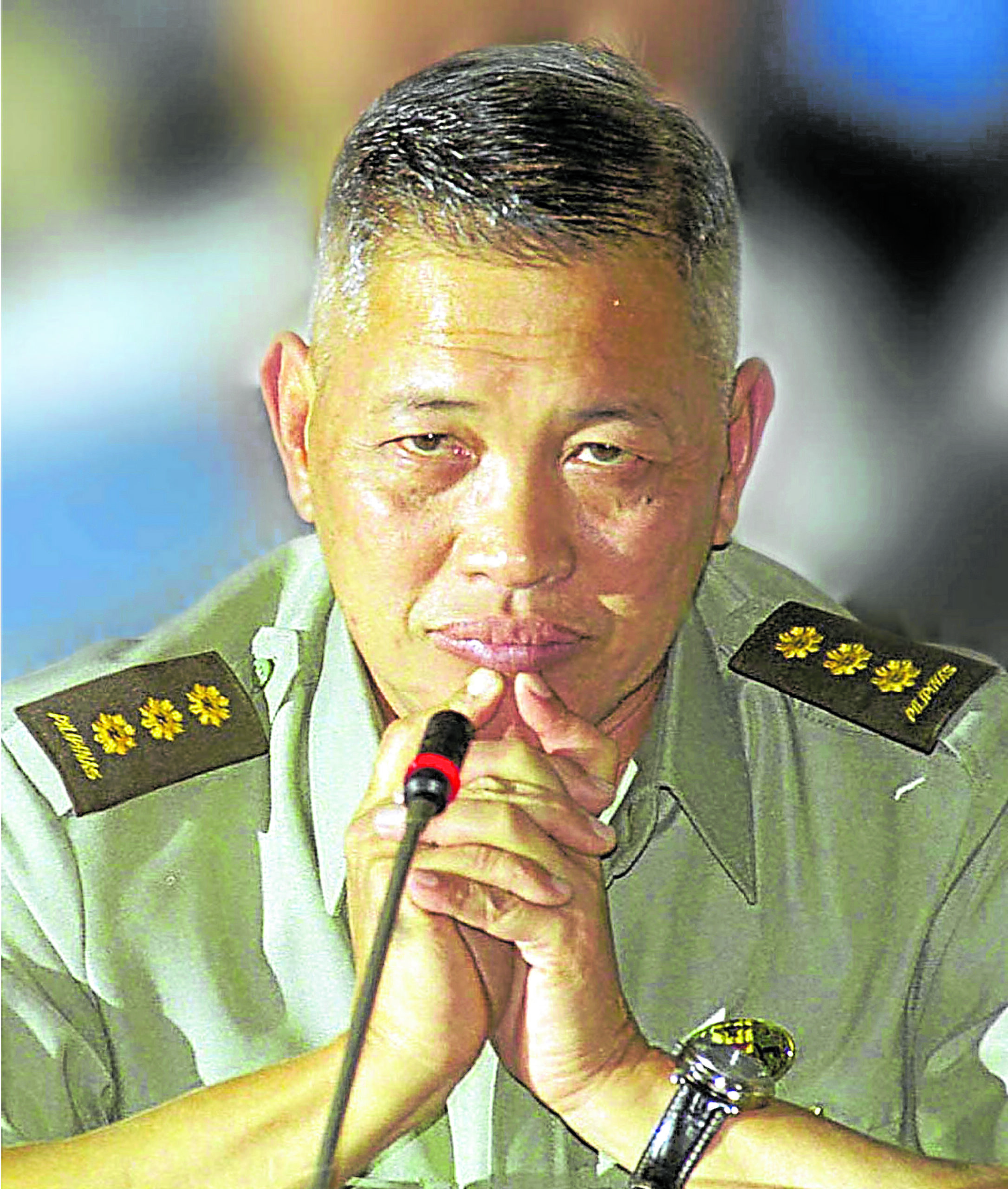From rebel officer to intel chief: Victor Corpus, 79

Victor Corpus—JESS YUSON
Victor Corpus, a former instructor at the Philippine Military Academy (PMA) who defected to the New People’s Army (NPA) and then turned his back on the insurgency years later and became the military intelligence chief, has died, a relative announced on Thursday. He was 79.
“No more pain. You are now in a better place with our Lord,” his niece, Jennies Cruz, posted in her announcement on Facebook.
She did not disclose the cause of death.
READ: Former rebel turned AFP intel chief Victor Corpus dies at 79
Cruz requested other relatives and friends to offer prayers “for the repose of the soul of our beloved and to ask God for comfort for the bereaved family.”
“We value your prayers among anything else,” she said.
Corpus’ “ideological awakening” happened while he was a cadet at the PMA. He later joined the militant Kabataang Makabayan.
Armory raid leader
Serving as an instructor at the PMA and officer of the day, Corpus, then a Philippine Constabulary lieutenant, led an NPA team that raided the PMA armory on Dec. 29, 1970. They carted away several rifles, machine guns, grenade launchers, a bazooka and thousands of rounds of ammunition.
He said in an interview years later that he was appointed to the central committee of the Communist Party of the Philippines (CPP) and was a training officer of the NPA in northern Luzon from 1971 to 1975.
One of his tasks was to lead a band of rebels to receive an arms shipment from China in 1972. The arms landing was discovered by the military, which prevented the NPA from acquiring all the weapons shipped on the MV Karagatan, which had run aground at Digoyo Point in Palanan, Isabela province.
Corpus surrendered in 1976 citing disillusionment on how the party was being run. He was particularly critical of the alleged CPP-instigated Plaza Miranda bombing in August 1971, which killed nine people and wounded 30 others.
He remained in detention for 10 years and was one of the first political prisoners released by the new Aquino government following the 1986 Edsa People Power Revolution that toppled the Marcos dictatorship.
Reinstated
In 1987, Corpus was reinstated in the military and worked as chief of the Combat Research Office of the deputy chief of staff for operations until June 1989.
He was transferred to a tiny command in Panay, where he pioneered the Green Panay program in 1993. This program was aimed at reforesting parts of a 33,000-hectare military reservation in Jamindan, Panay.
Corpus was later pulled out of the unit and the program wilted away.
During this period, he was also awarded a fellowship at Harvard to study public administration.
Corpus also served as deputy chief of the operations center of the National Peace and Development Plan under the defense department.
Saving the queen
In 2001, he was appointed chief of the Intelligence Service of the Armed Forces of the Philippines (Isafp) under the Arroyo administration.
In 2003, he resigned as Isafp chief following the Oakwood mutiny.
“In chess, when a queen is beleaguered, it is sometimes necessary to sacrifice a knight to save the game. I feel that the restiveness will not calm down with my continued presence,” he said in his resignation letter to Arroyo.
Then Lt. s.g. Antonio Trillanes IV, who later became senator and other junior military officers, demanded the resignation of Arroyo and other military officials, including Corpus, over anomalies in the AFP.
In October 2004, Corpus retired as AFP chief of Civil Relations Services with the rank of brigadier general. He welcomed his retirement because he also wanted “to have more time to write.”
Green job, book
But Arroyo appointed him as presidential adviser on environmental issues, with the twofold task of running after illegal loggers and overseeing a national reforestation program.
Corpus published “Silent War,” a book that looked at the insurgency from the point of view of a soldier who had defected to the enemy and eventually returned to the fold of the law. He also co-authored the AFP anti-insurgency program, “Lambat Bitag.”
Corpus was also a recipient of several awards, including two distinguished service star medals, two bronze cross medals, and the Gawad sa Kaunlaran medal.
Before joining the military, he finished his elementary and high school education at De La Salle College in Manila. —WITH A REPORT FROM INQUIRER RESEARCH